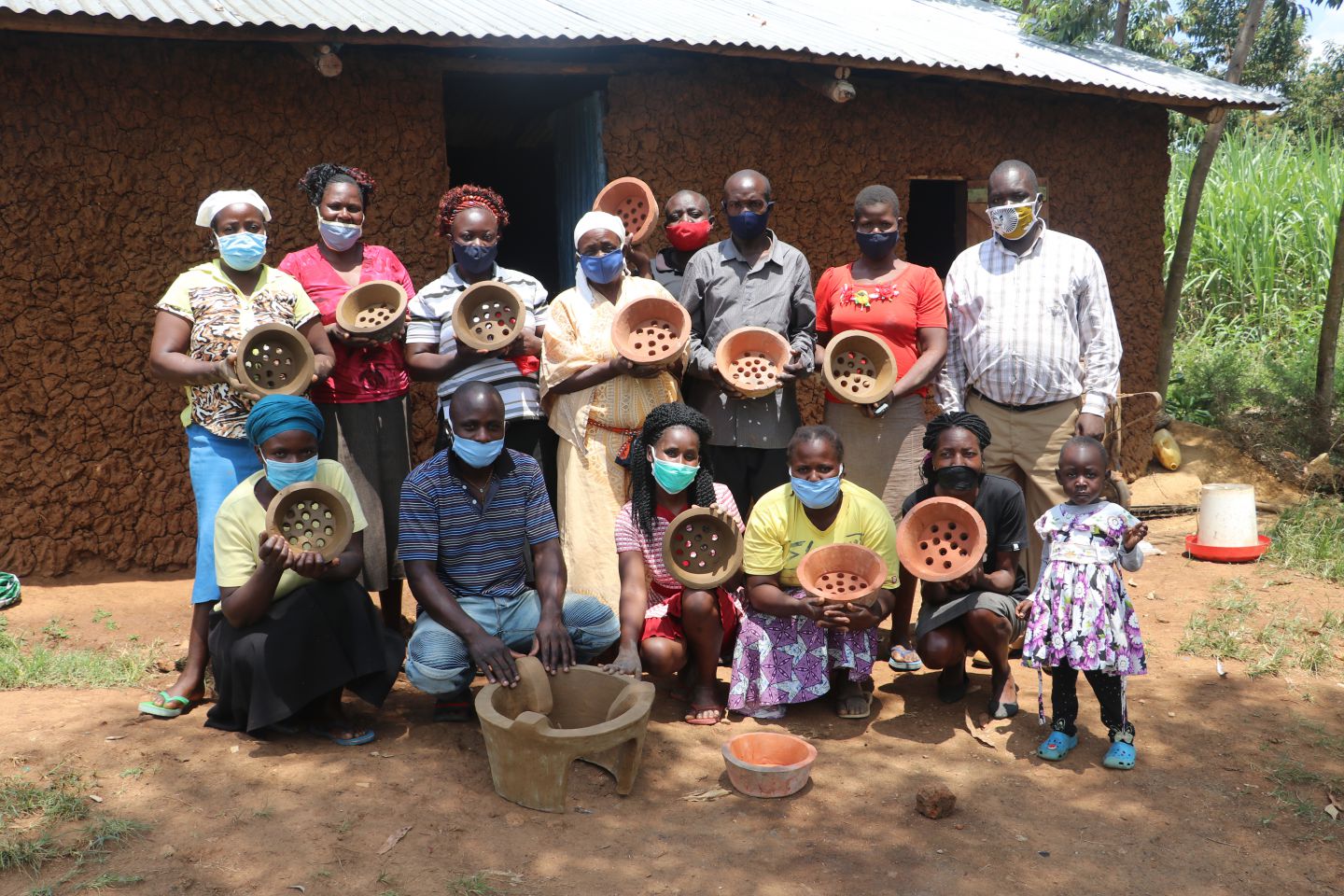Clay Works Innovation Center, an improved cookstoves liner production center in Kakamega County’s Ichingo village (Kenya), was launched in January 2020. The group started off as a pottery production center back in November 2019, with a membership of six individuals; two men and four women on a full time pottery production job and part time improved cookstoves installations. This went on for a while, until two months later, when one of the group members received an invitation asking him and other two members from his group to attend a training organized by Practical Action under the Women in Energy Enterprises in Kenya (WEEK) Phase 2 project in his home town of Mumias.
“It was one sunny afternoon in the month of January when one of us received a call from an unknown number inviting our group to attend a clean energy workshop at Mumias town. The caller explained more about the organization and the project named Women in Energy Enterprises in Kenya that was facilitating the workshop”, recalls the group’s head of marketing.
After the call, the group organized and sent three representatives, two women and one man, for the training. At the workshop, the team gained new knowledge and skills on business development and management, business diversification, marketing strategies, record keeping and gender in energy, business financing and agency empowerment & self-leadership, among other useful topics. The members also networked with the other participants and gained new ideas on other types of improved cookstoves such as locally manufactured ceramic liners referred to as upesi and fuel efficiency charcoal stoves popularly referred to as smart jiko. After the training, they shared the ideas with the rest of their group members who embraced and embarked on actualizing the ideas.
“The trainings were an eye opener for us as we were able to explore new opportunities no one in the group had ever thought of. In our first month, we sold 150 liners which earned the group Ksh. 28,000 (USD 258). Some neighbors also gained interest in our work and our membership number grew to fifteen, with four members being male”, explains Asha Masinde
When the COVID-19 pandemic hit the country in March 2020, the group’s business was among the many enterprises that were affected as a result of the pandemic. Considering their market scope which was ideally within the neighboring markets, their customers’ margin reduced significantly due to reduced purchasing power of the target customers. And when they were at the verge of quitting, their business mentor from Practical Action’s WEEK Phase II project, Anthony Mukhongo, worked with them to develop new marketing strategies. He advised them to take advantage of the online marketing platforms. This decision changed the group member’s lives for the better.
“Previously we had opened a Facebook page with no success. After Mukhongo’s advice, we opened another one and started posting our products regularly. We also shared photos of our work on our individual Whatsapp status and within a span of one month we received three customers, one from Mombasa who wanted to be supplied with 35,000 liners, one from Nakuru who wanted 20,000 pieces and another one from Bungoma who needed 6,000 pieces”, shares Dominic, the group’s head of marketing.
The bulk number of supply requests motivated the members into registering their group as a society under the Social Services Department. They also started a savings and loaning initiative popularly known as table banking, which has been very beneficial to individual group members as they are able to make savings and borrow small amounts of loans.
Future Plans
The group’s future plans include buying a parcel of land where they can build their own production house. Currently, they do their production in one member’s house and keep the products in their home stores. They have started building a bigger kiln, which can fire up to 500 liners a day. They also intend to diversify into briquettes production which they will be using in firing their kiln as well as selling some for income generation.
“Once we have our own production house, we will invest in buying a small pickup to transport our liners to the market. We will also create job opportunities for other aspiring individuals as we believe the workload will increase” explains Saida Musumba, the group’s Chairlady.
This story was created in collaboration with our partner, Practical Action in East Africa.











Follow us on: